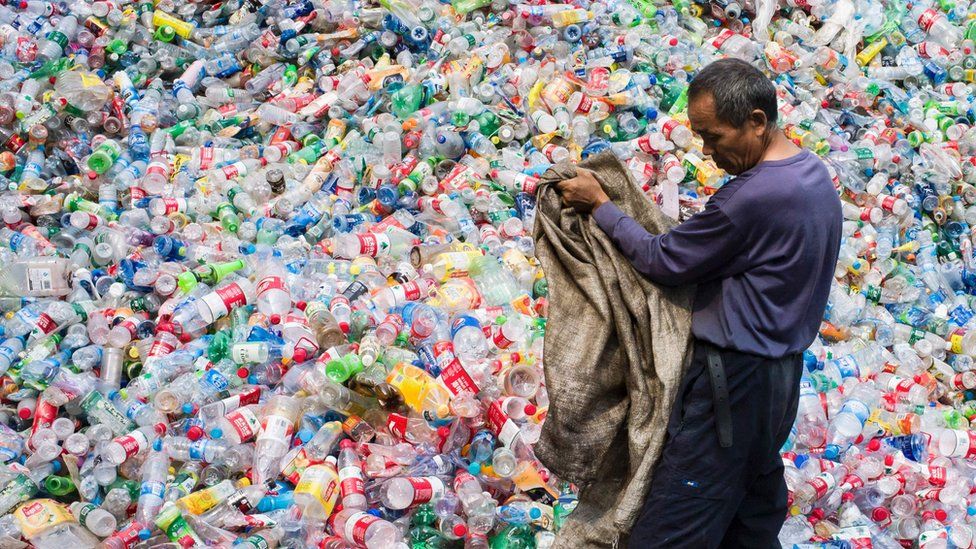- Empty cart.
- Continue Shopping
How to Reduce Plastic Use for Health and Environment

Plastic pollution has become a global environmental crisis, affecting ecosystems, wildlife, and human health. Plastic waste, particularly single-use plastics, can persist in the environment for hundreds of years, releasing harmful chemicals and contributing to a host of problems. By reducing plastic use in your daily life, you can make a positive impact on the environment and promote better health. Here are practical steps you can take to reduce plastic consumption:
1. Switch to Reusable Bags
Replace single-use plastic bags with reusable shopping bags made from materials like cloth, jute, or recycled plastic. Keep these bags handy for groceries, shopping, and other outings.
2. Use a Reusable Water Bottle
Invest in a reusable water bottle made of stainless steel, glass, or BPA-free plastic. This helps reduce the need for single-use plastic water bottles and minimizes exposure to potentially harmful chemicals in plastic.
3. Say No to Plastic Straws
Skip plastic straws when ordering drinks at restaurants or cafes. If you prefer using straws, carry a reusable metal or bamboo straw with you.
4. Choose Glass or Stainless Steel Containers
Opt for glass or stainless steel containers for food storage instead of plastic containers. These alternatives are safer for food storage and can be used repeatedly.
5. Buy in Bulk
Purchase items like grains, nuts, and dried fruits from bulk bins using your reusable containers or bags. This reduces the need for plastic packaging.
6. Use Cloth Napkins
Replace disposable paper napkins with cloth napkins at home. They are not only eco-friendly but also add a touch of elegance to your dining experience.
7. Bring Your Own Utensils
Carry reusable utensils, such as a fork, knife, and spoon, when eating out or ordering takeout to avoid using plastic cutlery.
8. Choose Bar Soap and Refillable Dispensers
Instead of liquid soap in plastic bottles, opt for bar soap or refillable soap dispensers to reduce plastic waste in your bathroom.
9. Switch to Cloth Diapers
If you have a baby, consider using cloth diapers instead of disposable ones. Cloth diapers are reusable and generate less plastic waste.
10. Avoid Single-Use Plastics in Food Packaging
Be mindful of single-use plastics used in food packaging. Choose products with minimal packaging or those packaged in eco-friendly materials.
11. Support Plastic-Free Alternatives
Seek out products and brands that prioritize sustainability and offer plastic-free packaging. Supporting such initiatives can drive change in the industry.
12. Recycle Properly
Follow your local recycling guidelines and recycle plastics responsibly. Familiarize yourself with the types of plastics accepted in your area, and clean and sort recyclables accordingly.
13. Participate in Clean-Up Efforts
Get involved in local clean-up activities, such as beach clean-ups or neighborhood litter pick-ups, to help remove plastic waste from the environment.
14. Educate Yourself and Others
Stay informed about the environmental impact of plastic pollution and share your knowledge with others. Education is key to raising awareness and driving change.
15. Advocate for Policy Changes
Support policies and initiatives aimed at reducing plastic use and promoting sustainable alternatives. Contact your elected officials to express your concerns and show your support for plastic reduction efforts.
16. Compost Organic Waste
By composting food scraps and organic materials, you can reduce the amount of plastic trash generated, as many food items come in plastic packaging.
17. Reduce Microplastic Exposure
Microplastics are tiny plastic particles found in many personal care products. Choose products that are free from microbeads and microplastics to reduce exposure.
18. Minimize Online Shopping Packaging
Request minimal packaging when ordering items online, and recycle or reuse packaging materials whenever possible.
19. Support Plastic-Free Initiatives
Support businesses and organizations that actively work to reduce plastic use and promote sustainable practices.
20. Lead by Example
Inspire others by leading a plastic-free lifestyle. Your actions can influence friends, family, and your community to make more sustainable choices.
Finally, Reducing plastic use is not only beneficial for the environment but also for your health. Plastic waste often leaches harmful chemicals into the environment and can end up in the food chain. By adopting these plastic-reduction strategies, you can contribute to a cleaner and healthier planet while setting a positive example for those around you.








